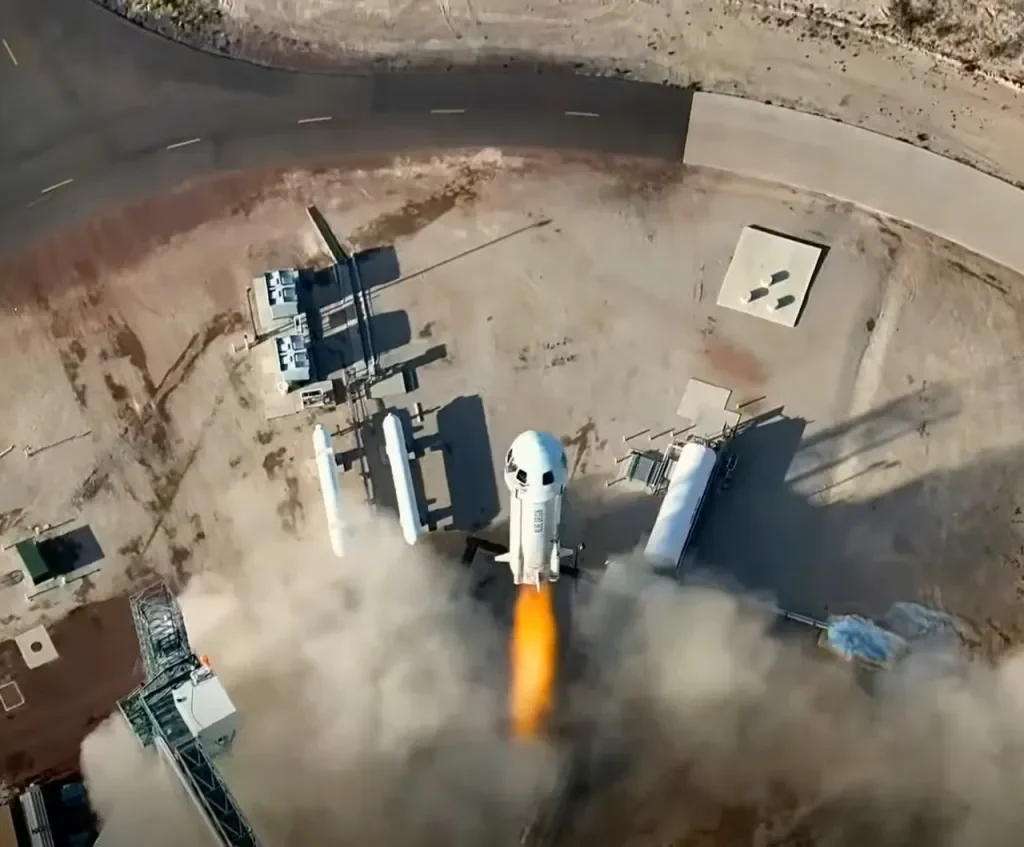Blue Origin successfully launched six passengers on a suborbital flight aboard its New Shepard vehicle from Launch Site One in West Texas. The NS-32 mission lifted off at 9:39 a.m. Eastern and reached an apogee of 105 kilometers before safely returning the crew and booster to Earth about 10 minutes later.
The six passengers on board included Aymette (Amy) Medina Jorge, a Texas teacher sponsored by Mexican healthcare company Farmacias Similares; Gretchen Green, a doctor and entrepreneur; Jaime Alemán, a Panamanian lawyer and former ambassador to the United States; Jesse Williams, a Canadian entrepreneur and adventurer; Mark Rocket, a New Zealand businessman and early Rocket Lab investor; and Paul Jeris, a real estate developer. Notably, this flight marked the first space journey for a New Zealander and a Panamanian.
This was the 12th crewed New Shepard flight, bringing the total number of people flown by the vehicle to 64, with four individuals having flown more than once. So far in 2025, Blue Origin has completed four New Shepard flights — three crewed and one payload-only mission simulating lunar gravity. The company has not revealed its full flight schedule for the year.
At the recent Humans to the Moon and Mars Summit by Explore Mars on May 28, Blue Origin CEO Dave Limp reaffirmed the company's commitment to the New Shepard program, even as it develops its New Glenn orbital rocket and Blue Moon lunar lander. Limp emphasized that New Shepard is both a commercially viable business and a valuable platform for technology testing.
“First of all, it's a good business,” Limp said, highlighting the strong demand from people inspired by space who want to experience it firsthand. While he did not share financial details, Limp stressed that even if it weren't commercially profitable, Blue Origin would continue New Shepard flights for their value as a testbed. For example, New Shepard flights have been used to test avionics destined for New Glenn and lidar technology for the Blue Moon Mark 1 lunar lander, which is scheduled for its maiden flight later this year.
